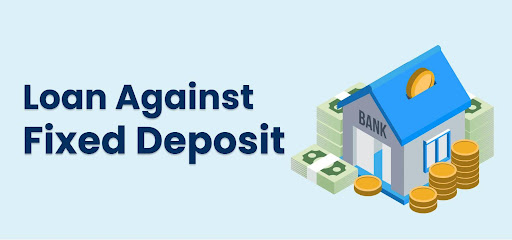As per the norms, any individual needs to conduct a considerable amount of research and plan for their future financial requirements. It is necessary to consider the risk factors for investments and savings, the possibility of emergency money requirements, and the various kinds of loans available in the market that they can apply for. One such option that is gaining popularity is to apply for loans against Fixed Deposits (FD).
A Fixed Deposit (FD) is a financial instrument, providing interest on the invested amount, with the capital safeguarded and guaranteed at maturity. A Fixed Deposit is effective for individuals looking to gain interest benefits and save money by investing their savings in an institution, typically a bank, financially thriving in the long run.
However, in most instances, a Fixed Deposit only caterers to concerns of saving and earning interest yet does not assist with immediate cash requirements. In cases such as these, individuals can opt to apply for loans against Fixed Deposits to obtain the required funds.
Loan against FD, as the name suggests, is a loan obtained from a bank or financial institution, wherein the collateral provided is the individual’s Fixed Deposit account, which the lenders hold in the event of non-payment. These loans, known as “Loan against FD,” come with instant and seamless processing, quick disbursal, attractive interest rates, and are available with a considerable amount of flexibility in repayment tenure and EMI payments.
Lenders may calculate the sanction amount as a percentage of the Fixed Deposit, with the interest rate levied on the loan amount obtained. The sanction of the loan amount ranges from 70% to 90% of the FD value. Therefore, the interest rate applicable is typically lesser than another loan instrument, and the loan eligibility criterion is more lenient.
On exploring how Loan against FD works, it is crucial to note that financial institutions offering loan against FD may calculate the interest against the exact repayment tenure, i.e., you pay interest even for a day’s delay while repaying instead of the conventional interest cycle; however, this differs from institution to institution.
As with any loan, lenders have established the loan against FD interest rate, which is comparatively lower than a Personal Loan or Business Loan, as the loan is secured with Fixed Deposit as collateral against the loan. General research shows that an interest rate ranges between 2% and 2.5% over the Fixed Deposit interest rate. However, it is essential to have complete clarity on the rate of interest amount and the repayment tenure before applying. It is crucial to note that the interest rate and repayment tenure vary between various banks and financial institutions.
Loan against FDs is an excellent option for individuals with an existing Fixed Deposit, looking for additional funds, but do not want to break the deposit. In most cases, lenders may provide “top-up” loans as an addendum to the currently built up Fixed Deposit account, without the necessity of additional paperwork for the loan against FDs and assurance courts for the collateral.
Moreover, individuals who do not wish to break their Fixed Deposit account to provide for funds can also apply for loan against FDs. It is essential to note that the sanction amount is calculated as per the lender’s policy, offering a varied percentage of the Fixed Deposit maintained.
It is crucial to evaluate the various advantages and disadvantages of applying for loans against FDs.
Advantages of Loan Against FDs:
– Lesser interest rate against other loan instruments
– Collateral security assures lenders- making the loan sanction process faster
– Easier and quicker processing
– Minimal documentation as compared to other conventional loans
– High approval rates with minimal eligibility requirements
– No requirement of credit check
Disadvantages of Loan Against FDs:
– The Fixed Deposit account is locked or pledged as collateral towards the loan
– Non-repayment causes the account to be at risk of foreclosure
– The loan repayment tenure is usually shorter than for a Personal Loan
– Delay in payment leads to interest and penal charges adding onto the repayment amount
– Loan amount sanctioned is generally less than the Fixed Deposit earmarked for collateral
Conclusion:
While the process of applying for a loan against FD with leading banks or other financial institutions comes with its set of prerequisite norms, it is essential to research and compare lenders before applying for a loan. It is imperative that prospective borrowers evaluate their financial standing, loan requirements, collateral amount, disbursement time, and payment structure whilst applying for a loan against an FD.
It is essential to review the loan agreement and the repayment terms thoroughly before accepting any loan. However, once the terms of the loan are agreed with, and the loan against Fixed Deposits is approved, it is an excellent option for those seeking quick availability of funds with lesser rates of interest, without the necessity of breaking their Fixed Deposit investments.

